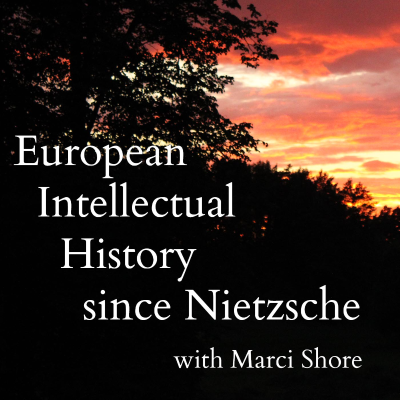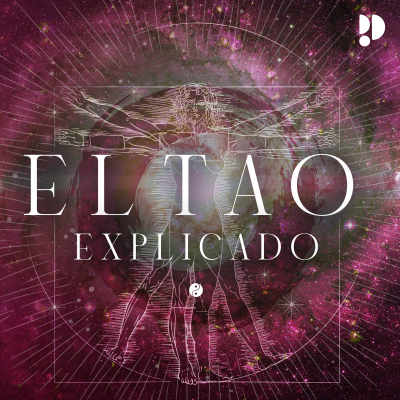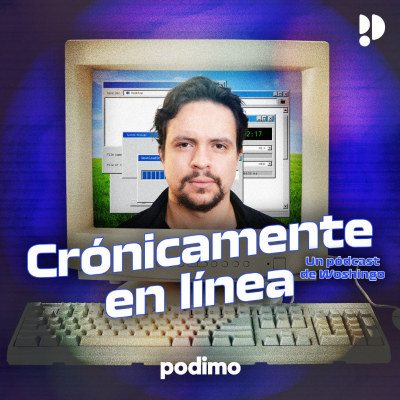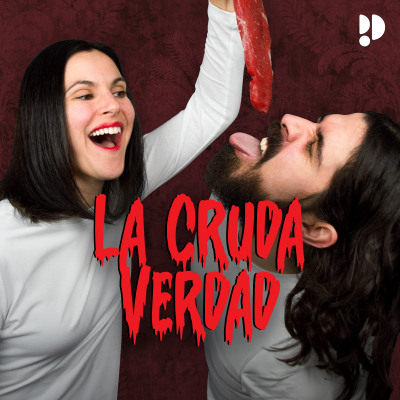
European Intellectual History since Nietzsche
Podcast de Marci Shore
Este podcast se puede escuchar gratuitamente en todos las plataformas y en la app de Podimo sin necesidad de suscripción.
Todos los episodios
25 episodios“When they stormed the Bastille they forgot the Sorbonne.”—Hélène Cixous, 1998. HIST 271/HUMS 339: European Intellectual History since Nietzsche is a survey course designed to introduce students to the dominant trends in modern European intellectual history. The class aims to sketch a narrative arc from the late 18th century transition to modernity through the late 20th century transition to post-modernity. Following an overview of the Enlightenment and Romanticism, we move through Hegelianism and Marxism and then on to Nietzsche’s declaration of the death of God. (God had been multifunctional, fulfilling epistemological, ontological and ethical roles. His death left an enormous empty space. Much of modern thought could be described as an attempt to replace God.) Topics include Marxism-Leninism, psychoanalysis, expressionism, structuralism, phenomenology, existentialism, anti-politics, and deconstruction. Authors include Nietzsche, Lenin, Kafka, Freud, Husserl, de Beauvoir, Heidegger, Arendt, Adorno, Sartre, Girard, Foucault, Derrida and Havel. With Marci Shore, Associate Professor of History at Yale. This lecture is also available to watch on YouTube. [https://www.youtube.com/watch?v=teqykibLJwE&list=PLh9mgdi4rNezUjm7niGdUWjnL0lHSDh0U&index=25&ab_channel=YaleCourses]
“In the hut’s book, glancing towards the well’s star, in the hope of a word to come.”—Paul Celan, 1966. HIST 271/HUMS 339: European Intellectual History since Nietzsche is a survey course designed to introduce students to the dominant trends in modern European intellectual history. The class aims to sketch a narrative arc from the late 18th century transition to modernity through the late 20th century transition to post-modernity. Following an overview of the Enlightenment and Romanticism, we move through Hegelianism and Marxism and then on to Nietzsche’s declaration of the death of God. (God had been multifunctional, fulfilling epistemological, ontological and ethical roles. His death left an enormous empty space. Much of modern thought could be described as an attempt to replace God.) Topics include Marxism-Leninism, psychoanalysis, expressionism, structuralism, phenomenology, existentialism, anti-politics, and deconstruction. Authors include Nietzsche, Lenin, Kafka, Freud, Husserl, de Beauvoir, Heidegger, Arendt, Adorno, Sartre, Girard, Foucault, Derrida and Havel. With Marci Shore, Associate Professor of History at Yale. This lecture is also available to watch on YouTube. [https://www.youtube.com/watch?v=DlWcK5PesPc&list=PLh9mgdi4rNezUjm7niGdUWjnL0lHSDh0U&index=24&ab_channel=YaleCourses]
“In the post-totalitarian system, this line runs de facto through each person, for everyone in his or her own way is both a victim and a supporter of the system.”—Václav Havel, “The Power of the Powerless.” HIST 271/HUMS 339: European Intellectual History since Nietzsche is a survey course designed to introduce students to the dominant trends in modern European intellectual history. The class aims to sketch a narrative arc from the late 18th century transition to modernity through the late 20th century transition to post-modernity. Following an overview of the Enlightenment and Romanticism, we move through Hegelianism and Marxism and then on to Nietzsche’s declaration of the death of God. (God had been multifunctional, fulfilling epistemological, ontological and ethical roles. His death left an enormous empty space. Much of modern thought could be described as an attempt to replace God.) Topics include Marxism-Leninism, psychoanalysis, expressionism, structuralism, phenomenology, existentialism, anti-politics, and deconstruction. Authors include Nietzsche, Lenin, Kafka, Freud, Husserl, de Beauvoir, Heidegger, Arendt, Adorno, Sartre, Girard, Foucault, Derrida and Havel. With Marci Shore, Associate Professor of History at Yale. This lecture is also available to watch on YouTube. [https://www.youtube.com/watch?v=94b025iHtAw&list=PLh9mgdi4rNezUjm7niGdUWjnL0lHSDh0U&index=23&ab_channel=YaleCourses]
“I often describe deconstruction as something which happens. It’s not purely linguistic, involving text or books. You can deconstruct gestures, choreography. That’s why I enlarged the concept of text.”—Jacques Derrida. HIST 271/HUMS 339: European Intellectual History since Nietzsche is a survey course designed to introduce students to the dominant trends in modern European intellectual history. The class aims to sketch a narrative arc from the late 18th century transition to modernity through the late 20th century transition to post-modernity. Following an overview of the Enlightenment and Romanticism, we move through Hegelianism and Marxism and then on to Nietzsche’s declaration of the death of God. (God had been multifunctional, fulfilling epistemological, ontological and ethical roles. His death left an enormous empty space. Much of modern thought could be described as an attempt to replace God.) Topics include Marxism-Leninism, psychoanalysis, expressionism, structuralism, phenomenology, existentialism, anti-politics, and deconstruction. Authors include Nietzsche, Lenin, Kafka, Freud, Husserl, de Beauvoir, Heidegger, Arendt, Adorno, Sartre, Girard, Foucault, Derrida and Havel. With Marci Shore, Associate Professor of History at Yale. This lecture is also available to watch on YouTube. [https://www.youtube.com/watch?v=nCGW_H7s7Q4&list=PLh9mgdi4rNezUjm7niGdUWjnL0lHSDh0U&index=22&ab_channel=YaleCourses]
“Power is everywhere; not because it embraces everything, but because it comes from everywhere.”—Michael Foucault, The History of Sexuality vol. I. HIST 271/HUMS 339: European Intellectual History since Nietzsche is a survey course designed to introduce students to the dominant trends in modern European intellectual history. The class aims to sketch a narrative arc from the late 18th century transition to modernity through the late 20th century transition to post-modernity. Following an overview of the Enlightenment and Romanticism, we move through Hegelianism and Marxism and then on to Nietzsche’s declaration of the death of God. (God had been multifunctional, fulfilling epistemological, ontological and ethical roles. His death left an enormous empty space. Much of modern thought could be described as an attempt to replace God.) Topics include Marxism-Leninism, psychoanalysis, expressionism, structuralism, phenomenology, existentialism, anti-politics, and deconstruction. Authors include Nietzsche, Lenin, Kafka, Freud, Husserl, de Beauvoir, Heidegger, Arendt, Adorno, Sartre, Girard, Foucault, Derrida and Havel. With Marci Shore, Associate Professor of History at Yale. This lecture is also available to watch on YouTube. [https://www.youtube.com/watch?v=tyeGAGus-oY&list=PLh9mgdi4rNezUjm7niGdUWjnL0lHSDh0U&index=21&ab_channel=YaleCourses]
Disponible en todas partes
¡Escucha Podimo en tu celular, tableta, computadora o coche!
Un universo de entretenimiento en audio
Miles de pódcasts y audiolibros exclusivos
Sin anuncios
No pierdas tiempo escuchando anuncios cuando escuches los contenidos de Podimo.























